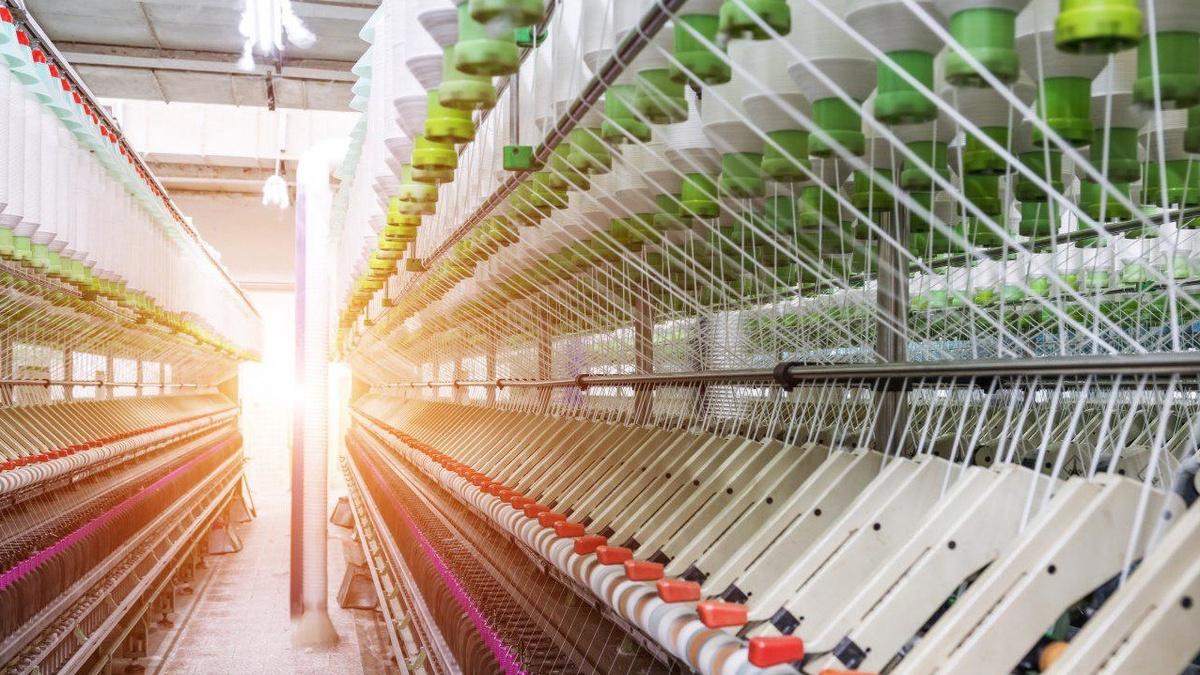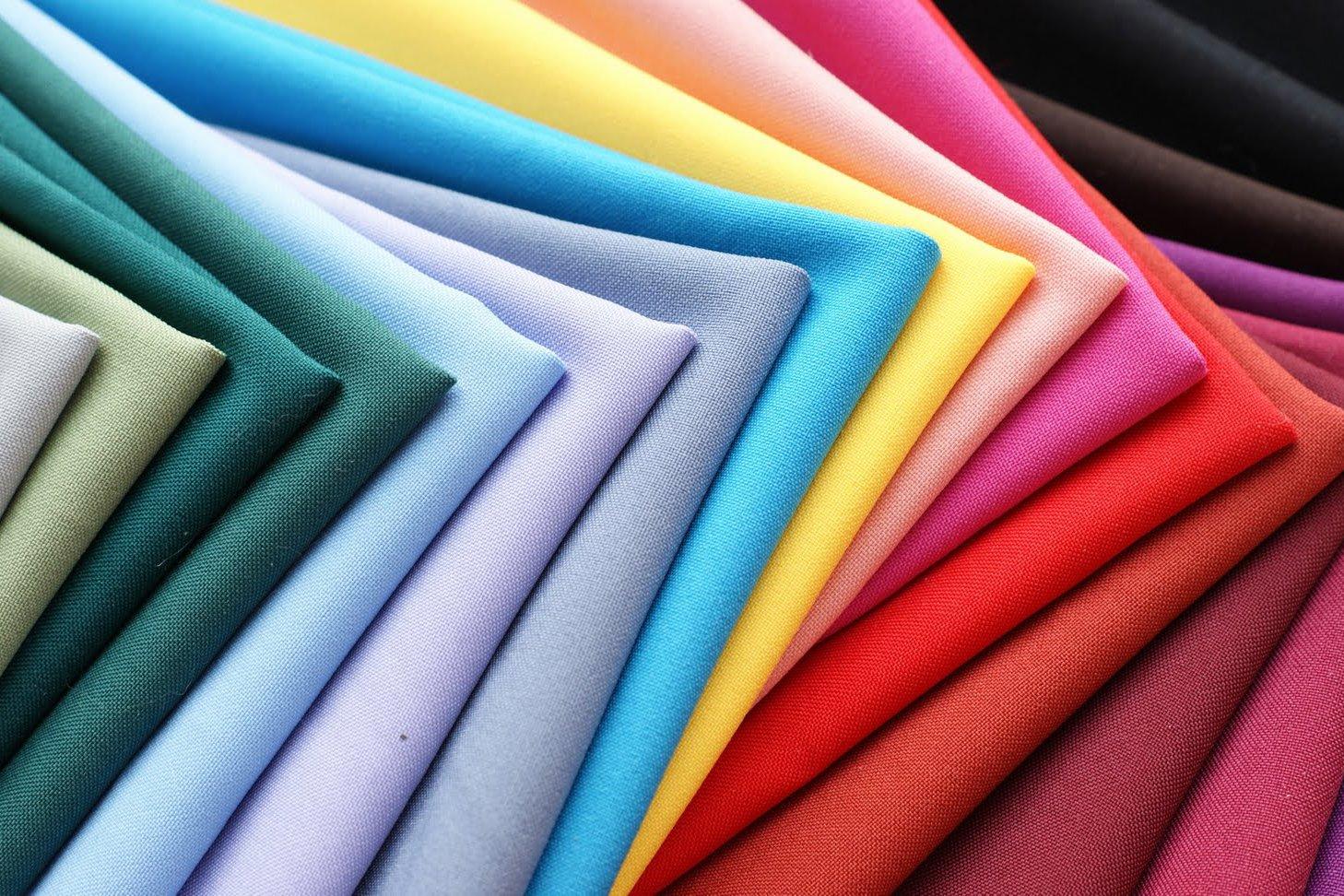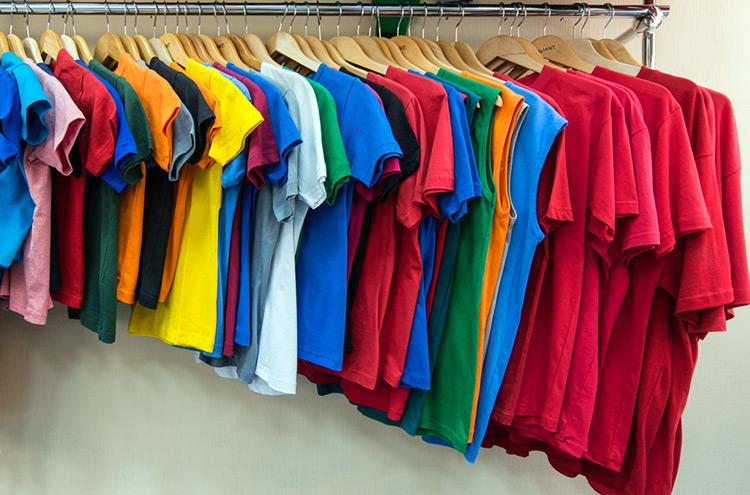From raw materials to finished products: Azerbaijan on track of reforms in textile industry
Caliber.AZ review
ANALYTICS 05 May 2022 - 14:35
| Khazar Akhundov Caliber.Az |
The world cotton market as well as the textile and garment industry plunged into another industry crisis. By April, cotton prices rose above a 10-year high; in turn, due to the rise in prices of raw materials, transport and energy costs, the expenses of Asian textile and clothing manufacturers increased many fold. The war in Ukraine and sanctions pressure on Russia have killed the market. Amid this, according to the results of the first quarter, the first place in Azerbaijan's non-oil exports was taken by deliveries of purified cotton. Nevertheless, the new market conditions being formed in the world today require Azerbaijani producers to reduce the supply of raw materials in favor of finished products. Is the local market ready for a radical restructuring of its exports?
The recently published World Bank (WB) report "Prospects of commodity markets" highlighted the sharp rise in cotton prices due to the Russian-Ukrainian conflict, lockdown in China, higher prices for logistics and electricity as well as adverse weather in a number of regions of the world. According to the report, the military operation in Ukraine has dealt a serious blow to commodity markets, changing global trade, production and consumption patterns in such a way that the prices will remain at historically high levels until the end of 2024. will keep prices at historically high levels through the end of 2024.
In particular, the production of threads, fabrics, and ready-made garments in war-torn Ukraine has been virtually halted under the transport blockade of the Black Sea ports. Since the beginning of the year, Belarus, which is under sanctions, has also experienced significant difficulties with the purchase of raw materials and the export of finished products. In turn, amid the departure of global clothing brands, fabric and accessories suppliers, the Russian textile industry faced problems unprecedented until then - disruption of supplies of raw materials and semi-finished products, a spike in prices, the curtailment of production and the departure of foreign partners in joint ventures. It is not possible to solve the problems of import substitution in the short term, cotton is not grown in Russia and raw materials have to be purchased in India, China, Turkey, Kazakhstan, and the lack of logistics and fractional small batches of purchases multiply the expenses of a few Russian factories.

The situation in other world centers of cotton cultivation and clothing production is also difficult. The causes of the crisis are related both to the disruptions in the supply chain and the multiple increases in the cost of transportation and to the aggravation of problems with energy supply to cotton processing plants due to the global rise in prices for oil, coal and gas and the acute shortage of energy resources in Southeast Asia. Rainy weather in India and China, drought in the U.S., which destroyed part of the cotton crop on the plantations, as well as recent lockdowns in the largest industrial cities of China played a negative role.
In the current situation, the World Bank experts predict that the global demand for the raw material in the current season will average 26.2 million tons, which is 2% higher than in 2020-2021, and given the declining supply, the market dynamics will continue to grow rapidly again. As a result, raw cotton prices are expected to rise by another 40% in 2022, even though the price rise has been ongoing since May 2020, and at the end of the first quarter of this year, global prices, reaching a ten-year high (2011), jumped to $1.3171 per pound (455 grams).
As a result, the cost of raw materials for clothing manufacturers and exporters will grow even more, increasing pressure on profitability. Bangladesh, the world's main garment factory, is directly affected, being 100% dependent on cotton imports and buying $3 billion worth of raw materials annually. For example, only in February 2022, the prices of cotton supplied to Bangladesh rose by 51% year-on-year, and cotton yarn went up by 60%, which increased the cost of clothing production accordingly. And if textile and sewing industries in Bangladesh and other countries of South-East Asia, which were leading the industry for decades at the expense of cheap labor (not observing elementary norms of the International Labor Organization), low taxes and social payments, faced difficulties, it is not difficult to imagine what problems the producers of the Old World faced lacking such advantages. For example, textile producers in Eastern Europe, Portugal, Spain often work on the verge of bankruptcy against the background of the cotton and energy crisis: raw cotton and yarn have increased in price by 70%, and their delivery from China has now become ten times more expensive, the logistics period is extended for three to four months, the cost of electricity has risen many times.
All these problems are observed amid the undeclared war, waged since 2021 between tailoring manufacturers in Asia and wholesale buyers of clothing - the leading retail chains in Europe and North America. Wholesalers are trying by hook or by crook to reduce prices and keep the benefits of the terms of delivery of goods, thus the retail chains have the bulk of the profits due to higher margins relative to purchase prices. In contrast, since last March, thirteen national associations representing clothing manufacturers in China, Bangladesh, Myanmar, Cambodia, Vietnam, Pakistan, Turkey, Morocco and Indonesia developed their own standard of purchasing practices in order to obtain more favorable terms from retailers. Essentially, a "textile OPEC" started to form. The key requirements of its participants were to prevent pressure on producers to get discounts, to limit the maximum payment period to 90 days and to compensate for lost profits in case of force majeure and to defer payments to factories, as it was during the pandemic and resulted in many bankruptcies. According to experts, the strengthening of the position of the "textile OPEC" participants in the issue of a fairer distribution of profits with the net retailer is already turning into the end of the era of cheap textiles and clothing produced in developing countries.

On the other hand, the cotton crisis and the new rules of the game for producers create preconditions for the departure of some investors to other regions of the world, in particular, the localization of industrial enterprises in the countries of the South Caucasus and Central Asia. This process is most successful in Uzbekistan, Turkmenistan and partly in Kazakhstan; not only is cotton grown in significant volumes in these countries, but also dozens of processing, weaving, clothing and other industrial enterprises have been established. Moreover, since 2020, Uzbekistan has stopped exporting raw cotton, and today the entire harvest is processed inside the country, while high value-added products such as textiles and clothing are exported. Turkmenistan plans to move in a similar direction, where in recent years several large weaving and garment factories have been put into operation, but Kazakhstan still accounts for more than half of its exports of raw materials and cotton fiber.
Unfortunately, raw cotton and partly yarn still account for the dominant share of exports in Azerbaijan, and only less than a quarter of finished products. This is partly due to the lack of effective fiscal and other incentive mechanisms in the country to encourage large producers of raw cotton and cotton cleaning factories to increase processing to 100% and produce fabrics, clothing, etc. On the contrary, taking into account global demand for cotton, the raw material supplies from Azerbaijan have increased significantly: according to the next edition of the "Export Review" of the Center for Analysis of Economic Reforms and Communications, at the end of the first quarter of 2022, refined cotton took first place in the list of exported goods of the non-oil sector ($72.2 million).
At the same time, according to the State Statistics Committee, in January-March this year, production in the domestic textile industry decreased by 10.1%. In its turn, the clothing production increased by 50.2% over the reporting period, but in this case, it is sewing clothes mainly from imported fabrics (China, Turkey, Iran), and these products are mainly sold on the domestic market, often "hiding" under the world-famous brands.
This situation is absolutely inconsistent with global trends and our country's raw material and resource potential. During the last two or three years, President Ilham Aliyev speaking at the field-specific events repeatedly noted the importance of increasing the share of processed products, export of cotton yarn, fabrics, ready-made textile and sewing products. "It is extremely necessary to create new spinning factories, because so far only 40% of harvested cotton is processed, and we should try to process 100% of raw materials, as it creates a value chain, new jobs. At the same time, the key goal for the future is to export end-use products. To do this, our relevant structures, the ministries of agriculture and economy should actively work to create textile enterprises, which can give impetus to the industrial sector of cotton production, attract investors and provide soft loans," the head of state urged about two years ago.
Undoubtedly, over the past decade, certain progress has been achieved in this direction: a sectoral industrial base is being formed in Azerbaijan thanks to the attraction of investors to technology parks and industrial districts. These steps made it possible to create a new cluster of weaving and sewing enterprises in Sumgayit, Mingachevir, Baku and other cities in the country. Thus, at the initiative of a number of local companies, textile factories were built in Baku city and Saatli district, and garment factories were created in Ganja, Yevlakh, and Lankaran. At the beginning of 2018, the first two factories of Mingachevir Textile LLC were opened to produce 20 thousand tons of different yarns. The factories were built on the territory of Mingachevir Industrial Park (MIP).

The most large-scale project has been implemented since 2012 in Sumgayit, where the largest in the region Gilan Textile Park was created, consisting of weaving, dyeing and sewing factories. Today, the product of Gilan Textile Park and Baku Textile Factory's products - bedding, terry products (towels, bathrobes), uniforms, workwear, etc. - are exported to Russia, Turkey, and other post-Soviet countries. However, so far such export aspirations are rather an exception than general industry practice.
The situation should radically change after the development of a new industry export strategy, working out mechanisms for attracting leading manufacturers of branded clothing to the country with subsequent deliveries to the CIS region and Europe. The relevant work should be accelerated through the Export & Investment Promotion Foundation of Azerbaijan (AZPROMO) and other specialized structures. Also, the government's strategic plan for the revival of the Karabakh region includes the construction of spinning and textile factories here, including the attraction of potential investors, mainly from Turkey and Pakistan.
In addition to Turkish investors, Azerbaijan has good business relations with Uzbekistan, the CIS industry leader: the region's largest producer of cotton cleaning equipment, the Uzbek company PAHTAMASH, plans to build a primary cotton processing plant in Azerbaijan, as well as to assist in the training of highly qualified personnel in the cotton industry. In the future, PAHTAMASH is ready to equip the factories to be built in the liberated territories of the country.
In order to expand the capitalization of the industry, it is necessary to prepare a package of fiscal and other preferences, and also to reduce customs duties on imports of fabrics and accessories on the condition of export of finished products. Similar enterprises could be localized, for example in Alat FEZ, which will be opened this summer. The Ministry of Education should also be involved in these processes, as there are very few technical colleges in Azerbaijan that train personnel for garment and textile factories, train designers, marketing specialists, equipment maintenance and repair specialists and so on.
Moreover, the outlined steps should be taken as soon as possible, taking into account favorable external conditions - growth of prices for clothing and fabrics. This would allow local producers to be optimally involved in the global system of labor division.
Caliber.Az
|
1
|
Critical F-35 upgrade deferred, 2024 production slashed by 27-50%
01 May 2024 - 09:05
|
|
2
|
Armenian Church sparks controversy amid handover of villages to Azerbaijan Unrest & dissent in Armenia
30 April 2024 - 18:02
|
|
3
|
“Russian fertiliser is the new gas” for Europe, top producer warns
30 April 2024 - 16:46
|
|
4
|
BRICS de-dollarization threatens US economy, JP Morgan CEO predicts
01 May 2024 - 20:49
|
|
5
|
EU aid to Armenia stalled as Hungary pushes for Azerbaijan's inclusion Geopolitical tensions revealed
02 May 2024 - 17:41
|
Copper heading to $15,000?
03 May 2024 - 07:03
“East Asian NATO” forming
03 May 2024 - 03:05
Good, bad and ugly in India's economy
03 May 2024 - 01:03
Carbon-negative cement can be made with mineral that helps catch CO2
02 May 2024 - 23:01
Russia says it sees no point in Ukraine peace talks in Switzerland
02 May 2024 - 21:10
Azerbaijan, Türkiye strengthen cooperation in human rights field
02 May 2024 - 21:03
Pakistan Air Force eyes to buy Chinese long-range drones
PHOTO02 May 2024 - 20:54
Low-coster FlyArystan launches direct flights from Aktau to Baku
02 May 2024 - 20:38
Britain could soon lose control of its defence industry
Expert Q&A02 May 2024 - 20:20
Azerbaijan, Türkiye discuss prospects of co-op on legal assessment of mine threat
PHOTO02 May 2024 - 20:15
Israeli Air Force attacks Hezbollah targets in Lebanon
VIDEO02 May 2024 - 20:03
US urges Georgia to reaffirm EU, NATO aspirations
02 May 2024 - 19:55
Official: Italy renders assistance to protect infrastructure in Caspian Sea
02 May 2024 - 19:46
OPEC+ could extend oil cuts, formal talks yet to start
02 May 2024 - 19:29
Armenia, Ukraine discuss situation in South Caucasus
02 May 2024 - 19:20
ADB rep: COP29 to help advance Central Asia's climate change action
02 May 2024 - 19:12
Yerevan, Washington discuss military cooperation
02 May 2024 - 18:55
Iran announces sanctions on several figures, entities in US, UK
02 May 2024 - 18:39
Azerbaijani top diplomat, Russian presidential special rep mull cooperation, regional developments
02 May 2024 - 18:29
Chairman: Azerbaijan pays great attention to tourism sector development
02 May 2024 - 18:21
ICESCO chief hails Azerbaijan's leadership in promoting intercultural dialogue, peace
02 May 2024 - 18:15
Armenian PM: Police must be entitled to use force
02 May 2024 - 18:03
Media: RKK/YPG terrorists forcibly recruit children
02 May 2024 - 17:48
EU aid to Armenia stalled as Hungary pushes for Azerbaijan's inclusion
Geopolitical tensions revealed02 May 2024 - 17:41
Vardanyan's nomination and devaluation of Nobel Peace Prize
Martin Sherman's article02 May 2024 - 17:30
Turkish authorities take down organized crime syndicate in Operation Mahzen-36
VIDEO02 May 2024 - 17:14
Azerbaijan, Uzbekistan discuss new format of business ties
02 May 2024 - 17:00
Israel's showdown in Rafah: Defying pressure, determined to dismantle Hamas
Caliber.Az on YouTube02 May 2024 - 16:50
Envoy: EU pleased to see progress in Azerbaijan-Armenia border delimitation
02 May 2024 - 16:44
CEC chairman: Azerbaijan considers postponing parliamentary elections due to COP29
02 May 2024 - 16:38
Türkiye destroys over 800 terrorists in 2024
VIDEO02 May 2024 - 16:28
World religious leaders adopt Shusha Declaration
02 May 2024 - 16:15
Azerbaijan reduces discount rate amid downtrend in global economy
Central Bank takes action02 May 2024 - 16:13
Azerbaijan contributes to climate change action, President Aliyev says
A meeting with UN official Charles Hart02 May 2024 - 15:57
Turkic peoples' crucial role in bridging East-West spotlighted at forum
02 May 2024 - 15:39
EU ready to collaborate with Azerbaijan on climate initiatives for COP29 chairmanship
02 May 2024 - 15:22
Armenian government closes national center for innovation and entrepreneurship due to funding shortfall
02 May 2024 - 15:04
Western Azerbaijan Community denounces biased US report
Urges Congress to abandon pressure on Azerbaijan02 May 2024 - 14:49
France losing its credibility
Article by The Guardian02 May 2024 - 14:32
US warns Georgia about undermining bilateral relations
02 May 2024 - 14:23
